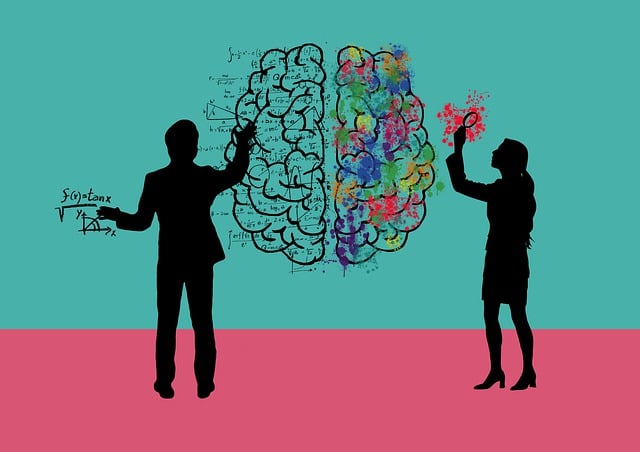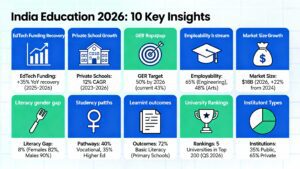Skill development in India is marked by stark regional and socioeconomic disparities. While urban centers benefit from advanced infrastructure and training facilities, rural areas often lag behind.

The world is in the midst of profound transformations, driven by advancements in technology, globalization, and evolving societal structures.
By 2047, when India celebrates 100 years of independence, the global landscape will be nearly unrecognizable from what it is today. This period of change presents opportunities but also poses significant challenges.
One of the most pressing concerns is whether adults today possess the skills necessary to not only adapt but also excel in this dynamic environment. Studies reveal that by 2040, over half of the jobs we take for granted today will either disappear or undergo significant changes.
The World Economic Forum’s 2024 report anticipates that automation will eliminate 85 million jobs by 2028 while simultaneously creating 97 million new roles that require advanced skills. This evolving scenario underscores the importance of equipping adults with skills that extend beyond technical proficiencies.
In my experience, it is evident that a combination of adaptability, emotional intelligence, and lifelong learning will be vital. The urgency of this issue calls for collective action by governments, educators, and industries to bridge the growing skill gap and ensure a future where individuals can thrive rather than struggle.
The Impact of Technological Disruption
The rapid pace of technological disruption has fundamentally altered the way we live and work. By 2024, technologies like artificial intelligence, robotics, and machine learning had already transformed industries, with their adoption rates growing by 35% annually.

The PwC India 2024 report projects that AI-driven innovations will contribute a staggering $15.7 trillion to the global economy by 2030. These changes bring about both opportunities and challenges.
Automation is reshaping industries such as healthcare, retail, and manufacturing, where tasks previously performed by humans are increasingly handled by machines.
This wave of automation has profound implications for the workforce. A McKinsey Global Institute report from 2024 highlights that 40% of basic cognitive roles in these sectors are expected to be automated by 2032.
While this reduces operational costs for companies, it creates a pressing need for workers to upskill or risk obsolescence. The skills required in this new era are diverse, ranging from technical proficiencies like programming and data analytics to softer skills such as adaptability and creative problem-solving.
Despite these challenges, the future holds promise for those willing to embrace change. The Organisation for Economic Co-operation and Development (OECD) in 2024 emphasized the importance of lifelong learning, yet noted that only 36% of adults in G20 countries actively participate in reskilling programs.
Governments and industries must work together to make training programs more accessible and tailored to the changing job market, ensuring that no one is left behind.
The Role of Lifelong Learning
The concept of lifelong learning has evolved from an ideal to a necessity. With careers spanning over 50 years for many individuals, periodic reskilling is no longer optional.

According to UNESCO’s 2025 Future of Education report, adults need to update their skillsets approximately every five years to remain relevant.
Recognizing this need, India’s National Skill Development Corporation (NSDC) announced in 2024 its ambitious plan to upskill 400 million workers by 2040. However, achieving this goal requires addressing multiple barriers, including accessibility, quality, and affordability of training programs.
Online and hybrid learning models have emerged as powerful tools in promoting lifelong learning. Platforms like Coursera reported a 45% increase in enrollments for courses such as data science and digital marketing in 2024 alone.
These platforms democratize access to education, enabling individuals across geographies to learn at their own pace. However, significant disparities persist.
Many rural and underserved communities lack the digital infrastructure required to fully benefit from these opportunities. Bridging this gap will be critical to ensuring equitable access to lifelong learning initiatives.
Moreover, fostering a culture of continuous learning within organizations is essential. Companies must recognize the value of investing in their workforce’s development, not just to enhance productivity but to remain competitive in an evolving market.
Lifelong learning is not just about acquiring technical skills; it’s about fostering curiosity, adaptability, and a commitment to growth.
Emotional and Interpersonal Skills in the Future Workplace
As automation continues to redefine industries, the value of emotional and interpersonal skills is rising exponentially.

By 2040, roles requiring high levels of emotional intelligence, collaboration, and cultural adaptability will dominate the job market. Deloitte’s 2025 report predicts that 60% of senior roles will prioritize emotional intelligence over technical expertise.
India’s service sector, which contributed over 53% to GDP in 2024, is a testament to the importance of interpersonal skills. Professionals in this sector are increasingly required to collaborate with diverse teams and navigate complex client interactions. The rise of remote work has further highlighted the importance of skills like empathy, trust-building, and effective communication. These are not easily replaced by machines and remain uniquely human capabilities.
However, the current education system often undervalues these skills, focusing instead on rote learning and technical competencies.
Employers must advocate for a more holistic approach to education and training that balances technical and emotional skill development.
Programs aimed at fostering leadership, teamwork, and adaptability can prepare individuals for the nuanced challenges of the modern workplace. As the workplace continues to evolve, emotional intelligence will be a critical determinant of individual and organizational success.
Addressing Regional and Socioeconomic Disparities
Skill development in India is marked by stark regional and socioeconomic disparities. While urban centers benefit from advanced infrastructure and training facilities, rural areas often lag behind.

In 2024, the Ministry of Skill Development and Entrepreneurship reported that only 28% of the adult population had access to formal skilling programs, with rural regions being the most underserved.
Efforts to address these disparities have shown promising results. For instance, the Skill India Mission’s 2024 expansion introduced targeted programs for women and marginalized communities, increasing participation rates by 18% year-on-year.
However, these initiatives must scale further to meet the ambitious goal of creating an inclusive workforce by 2047. Collaborations between government bodies, private sector organizations, and non-profits can facilitate localized, industry-relevant training programs.
Such collaborations can address regional needs while ensuring the inclusion of underrepresented demographics.
Digital infrastructure development is another critical area of focus. As online learning becomes a cornerstone of skill development, ensuring access to high-speed internet and affordable digital devices in rural areas will be essential.
This infrastructure can bridge the urban-rural divide, enabling individuals in remote regions to access the same quality of training as their urban counterparts.
Preparing for Jobs That Don’t Yet Exist
One of the most significant challenges in skill development is preparing for jobs that do not yet exist.

The World Economic Forum’s 2024 Future of Jobs report estimates that by 2035, 65% of children entering primary school today will work in roles that are currently undefined. This unpredictability calls for a fundamental shift in how we approach education and training.
The renewable energy sector offers a glimpse into this future. By 2040, the International Renewable Energy Agency (IRENA) projects the creation of 14 million jobs in sustainable development, carbon trading, and energy auditing.
These roles will require a blend of technical expertise, creativity, and ethical decision-making. Similarly, the rise of green technologies and sustainable practices will create new opportunities that demand innovative skillsets.
To prepare for such an uncertain future, individuals must focus on developing transferable skills. Critical thinking, problem-solving, and creativity will remain relevant across industries, regardless of technological advancements.
Education systems must emphasize these skills, moving away from traditional rote-learning models. Adults, too, must proactively engage in reskilling programs to stay competitive in an ever-changing job market.
The Growing Importance of Digital Literacy
In an increasingly digitized world, digital literacy has become a foundational skill for navigating both professional and personal spheres.

By 2025, global internet penetration is projected to reach 80%, and by 2030, nearly every industry will require some level of digital competence.
A report by India’s Ministry of Electronics and Information Technology (MeitY) in 2024 found that only 32% of rural households had digital access, compared to 76% in urban areas.
This stark disparity underlines the urgent need for targeted interventions to enhance digital literacy across demographics.
Digital literacy encompasses more than just basic computer skills. It includes the ability to analyze and interpret data, navigate digital tools effectively, and maintain cybersecurity awareness.
As the use of artificial intelligence and big data analytics becomes widespread, these skills will become critical in industries ranging from healthcare to finance. Furthermore, the integration of digital tools into education, healthcare, and governance underscores their relevance to everyday life.
Bridging the digital divide requires multi-stakeholder collaboration. Initiatives like the Digital India program have made strides in improving access, but sustained efforts are needed to ensure inclusivity.
By fostering digital literacy, we can empower individuals to harness technology as a tool for personal and professional growth, ensuring they remain active participants in an evolving digital economy.
Sustainability Skills for a Green Future
The global push towards sustainability is reshaping industries and creating demand for new skillsets. As the world grapples with climate change, green jobs are expected to increase exponentially.

By 2040, the renewable energy sector alone is predicted to employ over 24 million people globally, according to a 2025 report by the International Labour Organization (ILO).
These roles will require expertise in areas such as renewable energy technology, sustainable agriculture, and waste management.
Sustainability skills go beyond technical knowledge. They involve a deep understanding of ethical decision-making, systems thinking, and the ability to implement environmentally responsible practices.
For instance, India’s Green Skill Development Programme (GSDP) aims to train over 10 million individuals in sustainable practices by 2047, aligning with the country’s goals for environmental stewardship.
The education system has a pivotal role in fostering these skills. By integrating sustainability into curricula and promoting interdisciplinary learning, institutions can prepare individuals for careers that contribute to a greener future.
Additionally, upskilling programs tailored to emerging green industries can ensure that adults remain competitive in a rapidly evolving job market. Embracing sustainability skills is not just a professional imperative but a moral responsibility toward future generations.
The Need for Cultural Competency in a Globalized World
In an increasingly interconnected world, cultural competency has emerged as a crucial skill. The global economy relies heavily on cross-border collaborations, and understanding cultural nuances can significantly enhance the effectiveness of international partnerships.

A 2024 report by the World Economic Forum highlights that businesses with culturally competent teams outperform their peers by 35% in global markets. Cultural competency involves an awareness and appreciation of diverse traditions, values, and communication styles.
These skills are particularly relevant in sectors like international trade, diplomacy, and global technology projects, where success hinges on seamless cross-cultural communication. Furthermore, the rise of remote work has increased interactions across geographies, making cultural sensitivity an essential workplace trait.
India’s demographic diversity provides a unique advantage in fostering cultural competency. Educational institutions can play a pivotal role by integrating global perspectives into curricula and encouraging student exchanges.
Organizations can also contribute by offering diversity training programs to employees. Strengthening cultural competency not only enhances professional opportunities but also promotes inclusivity and mutual respect in an interconnected world.
Enhancing Problem-Solving Skills through Experiential Learning
Problem-solving is a universal skill, essential across all industries and roles. However, traditional education systems often fail to emphasize practical problem-solving, relying instead on theoretical approaches.

Experiential learning—learning through hands-on experiences—has proven to be a highly effective method for developing this critical skill.
According to a 2025 report by Harvard Business School, students engaged in experiential learning programs are 40% more likely to excel in dynamic and unpredictable work environments.
Experiential learning encompasses internships, apprenticeships, and project-based education. These opportunities allow individuals to confront real-world challenges, develop creative solutions, and adapt to diverse scenarios.
For instance, engineering students participating in sustainability projects gain practical insights that traditional classrooms cannot provide. Similarly, business students managing live case studies acquire decision-making skills critical for leadership roles.
Institutions and organizations must collaborate to create more avenues for experiential learning.
By integrating such programs into mainstream education, we can equip adults with problem-solving capabilities that are immediately applicable in their careers. As industries continue to evolve, the ability to navigate complex challenges will remain a cornerstone of professional success.
The Role of Communication Skills in the Digital Age
Effective communication is an indispensable skill in the digital age, where much of our personal and professional interactions occur online.

By 2025, digital communication platforms are expected to host over 90% of global business transactions, according to a report by Gartner.
As virtual meetings, remote collaborations, and digital marketing become more prevalent, the ability to convey ideas clearly and persuasively has never been more critical.
Communication skills extend beyond verbal and written proficiency. They encompass active listening, emotional intelligence, and the ability to adapt messages for different audiences.
For instance, leaders in organizations need to inspire their teams through compelling narratives, while customer-facing professionals must address concerns with empathy and clarity.
Educational institutions and workplaces must prioritize communication training, integrating it into curricula and professional development programs.
Digital tools, such as video conferencing and collaborative platforms, should also be leveraged to simulate real-world scenarios and enhance communication proficiency.
As the digital age progresses, effective communication will remain a cornerstone of success across industries.
Building Resilience to Navigate Uncertainty
Resilience, or the ability to adapt and recover from challenges, is a critical skill in today’s volatile world.

With industries undergoing rapid transformations and global crises becoming more frequent, resilience has emerged as a key determinant of personal and professional success.
A 2025 study by the University of Cambridge found that individuals with high resilience levels were 50% more likely to excel in roles requiring adaptability and problem-solving.
Resilience is not just an inherent trait but a skill that can be cultivated through intentional practices. Mindfulness training, stress management workshops, and peer support networks are proven methods for building resilience.
Organizations are increasingly recognizing the importance of mental well-being, integrating resilience-building initiatives into their employee development programs.
In education, fostering resilience involves creating environments where failure is viewed as a learning opportunity rather than a setback.
By encouraging risk-taking and emphasizing growth mindsets, educators can prepare students to navigate the uncertainties of the future confidently.
Resilience, when coupled with adaptability, equips individuals to thrive in an ever-changing world.
Conclusion
As we approach 2047, the skills required to navigate the complexities of a rapidly changing world are becoming increasingly multifaceted.
From mastering advanced technologies to fostering emotional intelligence, addressing regional disparities, enhancing digital literacy, embracing sustainability, and nurturing cultural competency, the path forward requires a collective effort.
Governments, educational institutions, and industries must prioritize skill development to ensure a future where individuals are not merely spectators of change but active participants in shaping it.
Are we ready to embrace this challenge and create a world where every individual has the skills to thrive?

